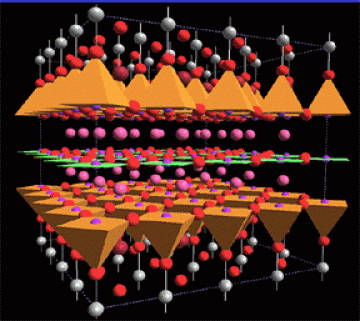Condensed matter physics stands as a cornerstone of modern physics, enveloping the intricate behavior of matter in various states. This vast field mesmerizes academics and enthusiasts alike due to its profound implications on technology, material science, and our fundamental understanding of nature. Herein, we present a curated selection of essential literature that guides the reader from foundational concepts to the cutting-edge advancements of the field, establishing a framework for both novices and seasoned professionals.
1. Introduction to Solid State Physics
For those embarking on their journey into condensed matter physics, Introduction to Solid State Physics by Charles Kittel is an indispensable tome. This classic text, now in its ninth edition, intricately details the crystalline structures, lattice dynamics, and electronic properties of solids. Kittel’s lucid exposition renders complex ideas accessible, allowing a diverse audience to engage with foundational principles. The text strikes an admirable balance, marrying theoretical insight with practical applications that accompany real-world examples, igniting curiosity and encouraging deeper exploration.
2. Quantum Theory of Solids
Transitioning to advanced topics, Quantum Theory of Solids by Pierre S. Pershan elucidates the quantum mechanical underpinnings of solid materials. This text delves into the behaviors of electrons and phonons, providing a rigorous mathematical framework. The author’s insightful commentary on how quantum principles govern thermal and electrical properties enhances appreciation for the material world. The inclusion of detailed problem sets reinforces concepts and fosters a nuanced understanding, making this volume vital for graduate-level studies.
3. The Physics of Low Dimensional Systems
As research progresses, the fascination with low-dimensional systems has gained traction. Electronic Properties of Two-Dimensional Systems by A. H. Castro Neto et al. offers an illuminating investigation into graphene and similar materials. The authors weave a narrative that is not only descriptive but also predictive, shedding light on emergent phenomena observable in low-dimensional phases. This book serves not just as an academic reference but as a portal into the evolving landscape of condensed matter research, where theoretical conjectures often find realization in experimental settings.
4. Many-Body Physics
Delving into the complexities of interacting particles, Many-Body Quantum Theory in Condensed Matter Physics by A. O. Gogolin et al. is an authoritative reference that surveys various approaches to many-body problems. With rigorous discussions on correlation functions, phase transitions, and quantum critical phenomena, this volume empowers readers to grapple with the collective behavior in systems comprising vast particle numbers. The work’s breadth and depth make it invaluable for both theoretical physicists and practitioners exploring the frontiers of condensed matter research.
5. Statistical Mechanics
A robust understanding of statistical mechanics is crucial for comprehending the macroscopic properties derived from microscopic behaviors. Statistical Mechanics: A Set of Lectures by Richard P. Feynman demystifies this critical area. Feynman’s unique pedagogical approach elucidates concepts such as ensemble theories, phase transitions, and fluctuation phenomena. The lecture format personalizes the learning experience, allowing readers to witness the evolution of these ideas as if they were present in the classroom. This dynamic presentation ignites enthusiasm for the subject, revealing the elegant links between statistical laws and thermodynamic behavior.
6. Strongly Correlated Electron Systems
A burgeoning subfield of condensed matter physics, strongly correlated electron systems are addressed eloquently in Correlated Electrons: From Models to Quantum Materials by François P. C. McGlynn et al. The text encapsulates the intricacies of high-temperature superconductivity and magnetism in a coherent discourse. By employing state-of-the-art theoretical frameworks, this comprehensive work provides insights into the quantum behavior that emerges when interactions dominate. By bridging theoretical physics and material discovery, this text illuminates pathways toward future breakthroughs.
7. Nanostructures and Advanced Materials
The study of nanostructures forms an important nexus between fundamental physics and application-driven research. Introduction to Nanoscience and Nanotechnology by Gabor L. Hornyak et al. equips readers with an understanding of the interactions governing nanoscale phenomena. The multidisciplinary approach converges physics, chemistry, and engineering, making it essential for anyone interested in the synthesis and characterization of nanomaterials. This text underscores not only the principles governing nano-objects but also the vast potential these materials hold for technological advancements.
8. Theoretical and Experimental Synergy
As contemporary research emphasizes the importance of interplay between theoretical constructs and experimental validation, The Oxford Handbook of Condensed Matter Physics stands as a comprehensive resource. Edited by Peter M. Chaikin and Taylor C. Lubensky, it offers a compendium of topics that span from fundamental theories to emergent technologies. Bringing together experts from various subfields, this handbook is a treasure trove of knowledge, exploring paradigm shifts in understanding condensed matter phenomena. Its vast scope prepares the reader to appreciate ongoing debates and advancements shaping the future of the field.
Conclusion
The realm of condensed matter physics is defined by its rich tapestry of interconnected concepts, challenging researchers to probe deeper into the fabric of reality. From the simplicity of the solid state to the complexities of quantum entanglement and strong correlations, the listed texts offer invaluable resources for those seeking wisdom in this captivating discipline. Whether you are a student, educator, or a dedicated researcher, these books are worthy companions on your quest for knowledge, guiding you from the allure of basic principles to the brilliance of cutting-edge discoveries.








